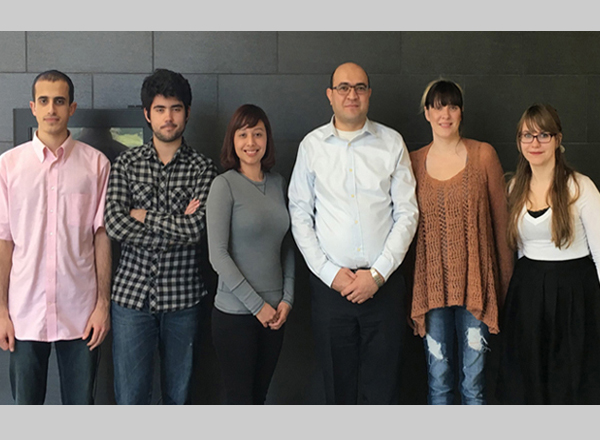Engineering Team Finalist in Community College Innovation Challenge

The National Science Foundation (NSF), in partnership with the American Association of Community Colleges (AACC), recently named a team of HFC Pre-engineering students as one of the 10 finalists in the second annual Community College Innovation Challenge (CCIC). This is HFC’s second consecutive year of earning this prestigious honor as one of the CCIC’s 10 finalist teams.
The CCIC fosters the development of critical innovation skills among students, calling upon them to propose innovative solutions based in the fields of science, technology, engineering and mathematics (STEM) to address complicated, real-world problems.
The HFC team’s project for this year is called “Rescue Restaurant Food Waste to Address Hunger.” In the United States (U.S.) alone, 40 percent of the nation’s food goes uneaten. Of that 40 percent, 15 percent alone can be attributed to restaurants. In response, the HFC team proposes to develop a compact, easy-to-use, self-automated food-preserving machine for restaurants. Such a system would then allow unused food to go to those who experience food insecurity.
The team members – Ahmed Shawhatti, Denis Sinani, Issamar Almaraz, Alexis Fitz Owens Tressler and Victoria Peruski – are enrolled in HON 236: Honors Directed Study – Service Learning. These talented students work under the supervision of Dr. Hassan Mohseni Nameghi, an HFC engineering professor. Nameghi also serves as the team faculty mentor. When investigating the food rescue problem, the team conducted a survey among 20 local restaurants and several urban farms.
In addition, the team volunteered in many community service centers and foodbanks for approximately 60 hours, including Forgotten Harvest in Oak Park, St. Christine Christian Services in Detroit, and the Keep Growing Detroit urban farm. The goal was to help the local community and to closely observe and better understand the donation gathering and distribution process. The team has recently collaborated with the Food Donation Connection Organization (FDCO), which connects 16,000 restaurants with 9,000 foodbanks throughout the U.S., England, Canada, and Australia. The FDCO’s mission correlates with the team’s intended objective to combat food waste in restaurants.
The HFC team’s research results suggest the following:
- Urban farming is a seasonal solution;
- Foodbanks are frequently challenged with the lack of food donation; and
- Restaurants are highly regulated and there is no technology currently available for quick food preservation and labeling.
To address these issues, the team’s solution is to invent the proposed food-preservation machine for restaurants to efficiently preserve its extra food for donation. Advanced mechanical and electrical control systems were used in the creation of the food-preserving machine to accommodate automatic cleaning, labeling, food preparation and customized food functions.
Additionally, a built-in function records preserved food, along with expiration dates and labels for food regulation and tax incentive reporting. The machine is also equipped with safety features such as an automatic shut-off function, automatic lock and warning functions. To make this a reality, the team plans to patent this idea, apply for approval from the Food & Drug Administration (FDA) and pitch the idea to food donors.
If the compact food-preserving machine is commonly used in restaurants, it will have countless benefits to our society. It will reduce the substantial food waste in restaurants, which will result in saving significant energy, water, and land resources. According to the National Resource Defense Council (NRDC), saving one hamburger is equivalent to the water of a 90-minute shower. This is overwhelming, given that 40 percent of food in the U.S. is thrown away. On the other hand, this food can be donated to the 14 percent of food insecure households.
To see a video of the HFC team’s project, please visit https://www.youtube.com/watch?v=Bdhxtr4EMbw&feature=youtu.be.
“I am very impressed and proud of these students who have conceived some very innovative, out-of-the-box solutions – two years in a row, no less. This speaks volumes about their talent, persistence and work ethic in addition to their intelligence. All of them have a future ahead with great promise,” said Dr. Tracy P. Pierner, HFC vice president of Academic Affairs.
The HFC team will attend a CCIC Boot Camp June 20-23 in Arlington, VA. The CCIC Boot Camp is designed to provide a hands-on learning opportunity for the 10 finalist teams to further develop their ideas through workshops and technical assistance focused on building innovation, entrepreneurship and strategic communication skills. It is mandatory for each student and faculty mentor to attend the CCIC Boot Camp.
The CCIC Boot Camp will feature an opportunity for the 10 finalist teams to display their projects as part of a reception on Capitol Hill Wednesday, June 22. Members of Congress and key congressional staff will receive invitations to meet with the 10 finalist teams to learn about their ideas and proposed solutions. NSF will reimburse up to $200 to each team to assist with developing their displays and materials for this event.
“Community colleges provide a unique avenue for developing our STEM workforce and broadening participation, and the CCIC is a platform that highlights the innovative efforts of students and professors to enhance their knowledge and contribute to solving challenging issues,” said Joan Ferrini-Mundy, NSF's assistant director for Education and Human Resources.
HFC was among the 10 finalists in 2015 as well for its “Real-Time Accident Detection on Michigan Highways” project. Last year’s team developed a computerized accident detection system for Michigan highways.
“Being a finalist for the second year at the CCIC proves that success is not a random matter at HFC, but that aiming for excellence is a habit. We are proud of our students’ accomplishments, the faculty’s dedication and the educational support at the College,” said Nameghi.